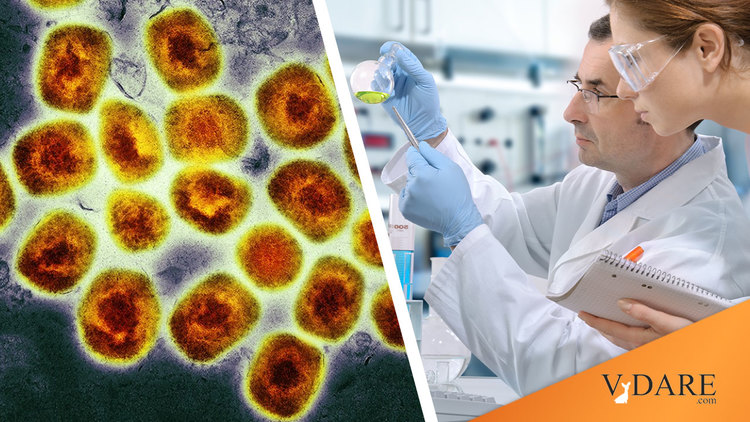
10/24/2022
From Science:
The United States is moving to tighten oversight of studies that could make viruses more dangerous. But how far should it go?
19 OCT 2022 BY JOCELYN KAISER
In a U.S. government lab in Bethesda, Maryland, virologists plan to equip the strain of the monkeypox virus that spread globally this year, causing mostly rash and flulike symptoms, with genes from a second monkeypox strain that causes more serious illness. Then they’ll see whether any of the changes make the virus more lethal to mice. The researchers hope that unraveling how specific genes make monkeypox more deadly will lead to better drugs and vaccines.
Some scientists are alarmed by the planned experiments, which were first reported by Science. If a more potent version of the outbreak strain accidentally escaped the high-containment, high-security lab at the National Institute of Allergy and Infectious Diseases (NIAID), it could spark an “epidemic with substantially more lethality,” fears epidemiologist Thomas Inglesby, director of the Center for Health Security at the Johns Hopkins University Bloomberg School of Public Health. That’s why he and others argue the experiments should undergo a special review required for especially risky U.S.-funded studies that might create a pathogen that could launch a catastrophic pandemic.
But it’s not clear that the rules apply to the proposed study. In a 2018, a safety panel determined it was exempt from review. Monkeypox did not meet the definition of a “potential pandemic pathogen” (PPP), the panel decided, because it didn’t spread easily. Now, with monkeypox widespread, the National Institutes of Health (NIH) is planning to reexamine the work, but it still might not qualify as “enhancing” a PPP, the agency says. That’s because the study will swap natural mutations, not create new ones, so it is not expected to create a monkeypox strain more virulent than the two already known.
The monkeypox controversy marks just the latest flare-up in a decade-old debate over exactly when a study that alters a pathogen is too risky for the U.S. government to fund — and who should have the power to decide. That wrangling became especially ferocious over the past 2 years, as the COVID-19 pandemic spawned allegations, so far unproven, that SARS-CoV-2 escaped from a laboratory in China. Now, in the pandemic’s wake, the U.S. government appears poised to make sizable changes to how it manages so-called gain-of-function (GOF) studies that tweak pathogens in ways that could make them spread faster or more dangerous to people.
I say we take off and nuke the entire Bethesda monkeypox lab site from orbit. It’s the only way to be sure.
After all the gays die in the neo-monkeypox pandemic of 2024, there will years of articles about how there’s no proof that this government program had anything to do with that unfortunate turn of events.
This is a content archive of VDARE.com, which Letitia James forced off of the Internet using lawfare.